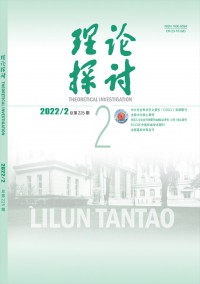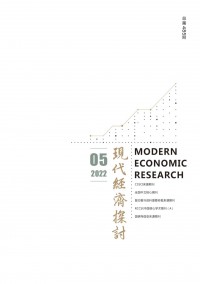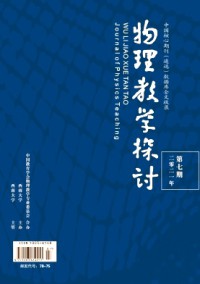探讨英语交流中的虚拟语气
前言:本站为你精心整理了探讨英语交流中的虚拟语气范文,希望能为你的创作提供参考价值,我们的客服老师可以帮助你提供个性化的参考范文,欢迎咨询。

一、虚拟语气用于条件状语从句。
1.表示与现在事实相反的假设时,条件状语从句中的谓语动词用“过去式(be的过去式用were)”。而主句中的谓语动词用“would(should,could,might)+动词原形”。例如:Ifhehadtime,hewouldattendthemeeting.
2.表示与过去的事实相反的假设时,条件状语从句的谓语动词用“had+过去分词”,主句中的谓语动词用“would(should,could,might)+have+过去分词”例如:
Ifyouhadtakenmyadvice,youwouldn’thavefailedintheexamination.
3、表示与将来事实相反的假设时,条件从句和主句所用的谓语动词与“表示与现在事实相反的假设”的谓语动词相同,或者条件从句中用“wereto(should)+动词原形”,例如:
Ifitweretoraintomorrow,themeetingwouldbeputoff.
4.当条件状语从句表示的行为和主句表示的行为所发生的时间不一致时,动词的形式要依据它所表示的时间来调整。例如:
Ifyouhadworkedhard,youwouldbeverytired.
5.以上句型可以转换成下列形式:
1)省略if用“were,had,should+主句”。例如:
WereIinschoolagain,Iwouldworkharder.
Hadyoubeenhereearlier,youwouldhaveseenhim.
但在虚拟条件状语从句中,省略连词的倒装形式的句首不能用动词的缩略形式,如我们可以说:Wereitnotfortheexpense,IwouldgotoItaly.
但不能说:Weren’titfortheexpense,IwouldgotoItaly.
2)用介词短语代替条件状语从句。例如:
Withoutair,therewouldbenolivingthings.
二、虚拟语气用于宾语从句
1.“wish+宾语从句”表示不能实现的愿望,汉语可译为
“可惜……”,“……就好了”,“悔不该……”,“但愿……”等。
表示现在不能实现的愿望,从句的谓语动词过去式;
表示将来不能实现的愿望,用“would(could)+动词原形”;
表示过去不能实现的愿望时,用“had+过去分词”或“(could)would+have+过去分词”。例如:
Iwishitwerespringalltheyearround.
Iwishyoucouldgowithus.
Wewishwehadarrivedtheretwohoursearlier.
2.虚拟语气在动词arrange,command,demand,desire,insist,order,propose,request,require,suggest等后面的宾语从句中用“(should)+动词原形”。例如:
Wesuggestthatwe(should)haveameeting.
Weinsistthatthey(should)gowithus.
Thedoctororderedthatshe(should)stayinbedforafewdays.
Hedemandedthatwe(should)startrightaway.
注意:只有当insist作“坚持(认为)”,“坚持(应该)”,suggest作“建议”解时,从句的动作发生在谓语之后,宾语从句才用虚拟语气。当insist作“力言”,“强调”,suggest作“暗示,表明”解时,宾语从句通常不用虚拟语气。例如:
Mikeinsistedthathehadneverstolenanything.
MadameCurieinsistedthattherewassomethinginnaturethatgaveoutradition.
Theexpressiononhisfacesuggestedthathewasveryangry.
三、虚拟语气用于表语从句、同位语从句
作advice,idea,order,demand,plan,proposal,suggestion,request等名词的表语从句和同位语从句,其谓语动词一般要用虚拟语气的结构“(should)+动词原形。”例如:
Weallagreedtohissuggestionthatwe(should)gotoBeijingforsightseeing.
Myideaisthatwe(should)doexercisesfirst.
四、虚拟语气用于主语从句
在主语从句中,谓语动词的虚拟语气结构用“should+动词原形”的结构,表示惊奇,不相信,惋惜,理应如此等。例如:
Itisnecessary(important,natural,strange,etc)thatweshouldcleantheroomeveryday.
Itwasapity(ashame,nowonder,etc)thatyoushouldbesocareless.
Itwillbedesired(suggested,decided,ordered,requested,proposed,etc.)thatsheshouldfinishherhomeworkthisafternoon
五、虚拟语气在asif(asthough),evenif(eventhough)等引导的表语从句或状语从句中的应用。
如果从句表示的动作发生在过去,用过去完成时;指现在状况,则用过去时,指将来则用过去将来时。例如:
Helookedasifhewereanartist.
HespeaksEnglishsofluentlyasifhehadstudiedEnglishinEngland.
Evenifhewerehere,hecouldnotsolvetheproblem.
在上述三种主语从句中,should应意为“应该”,“竟然”,可以省去,但不可换用would,主句所用动词的时态不限。注意:这种从句表示的是事实。如果说话人对这种事实表现出惊奇的情感,就可用虚拟语气。反之,如果不表示惊奇等情感,that从句也可陈述语气,例如:
Itisstrangethathedidnotcomeyesterday.
Itisapitythatyoucan’tswim.
六、虚拟语气用于定语从句
这种从句常用在Itis(high)time(that)…句型中,定语从句的谓语动词用过去式,或should+动词原形(should不能省略,be用were)来表示,意为“(现在)该……”。例如:
Itis(high)timeweleft(shouldleave).
Itishightimeweweregoing.
七、虚拟语气用于ifonly引导的感叹句中
IfonlyIhadtakenhisadvice.我要是听他的话就好了。
IfonlyIwereabird.我如果是一只鸟就好了。
八、虚拟语气在简单句中的应用
1)情态动词的过去式用于现在进行时,表示说话人谦虚,客气,有礼貌或语气委婉,常出现在日常生活中,例如:
Wouldyoubekindenoughtoopenthedoor?
2)用于一些习惯表达法中,例如:
Wouldyoulikeacupoftea?
Iwouldrathernottellyou.
Youhadbettergonow.
3)用“may+动词原形”表示“祝愿”。may必须置于句首,例如:
Mayyoubehappy!
Mayyousucceed!
练习选择最佳答案填空:
1.Theguardatthegateinsistedthateverybody_____therules.
A.obeysB.obeyC.willobeyD.wouldobey
2.Ifshehadworkedharder,she_____.
A.wouldsucceedB.hadsucceeded
C.shouldsucceedD.wouldhavesucceeded
3.IwishI_____youyesterday.
A.seenB.didseeC.hadseenD.weretosee
4.Youdidn’tletmedrive.Ifwe_____inturn,you_____sotired.
A.drove,didn’tgetB.weredriving,wouldn’tget
C.drove,wouldn’tgetD.haddriven,wouldn’thavegot
5.–IstayedatahotelwhileinNewYork.
--Oh,didyou?You_____withBarbara.
A.couldhavestayedB.couldstay
C.wouldstayD.musthavestayed
6.Iwasreallyanxiousaboutyou.You_____homewithoutaword.
A.mustn''''tleaveB.shouldn’thaveleft
C.oughtnottohaveleftD.shouldhaveleft



